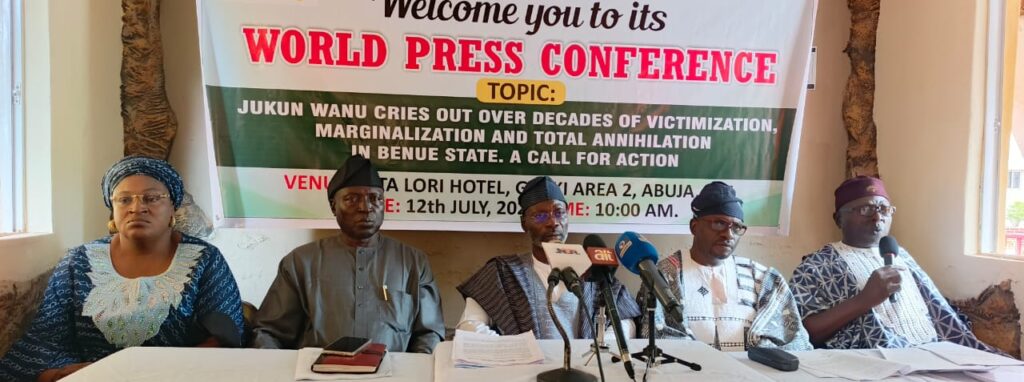The Jukun-Wanu people of Benue State have appealed to Governor Hyacinth Alia to include them in the governance process, calling for an end to what they described as decades of marginalisation.
Claiming presence in 14 of the state’s 23 Local Government Areas, the ethnic group decried the absence of government infrastructure and services in their communities.
The National Association of Jukun Wanu (NAJUWA) made the appeal during a press briefing held Saturday in Abuja, addressed by elder statesman, Moses Adanwo Amankye.
According to him, the Jukun-Wanu have been relegated to the background in all aspects of state affairs, in contradiction to historical records and facts. He said the Benue State Government and its political structures have failed to include the Jukun-Wanu in governance, pushing them toward near-total erasure.
Amankye lamented that their towns and villages, which were historically vibrant, now exist in a state of abandonment and decay. He said there is a complete absence of government infrastructure and services in their communities, including secondary schools, hospitals, roads, and access to clean water.
He also expressed concern that their traditional stools have not been recognised under state law, adding that there has been consistent interference in their traditional chieftaincy affairs, which undermines their heritage and leadership structures.
The group called for a review of the Benue State Traditional Council and Chieftaincy Laws of 2016 to formally recognise the traditional stools and leadership structures of the Jukun-Wanu people. They also urged the Federal and State Governments to implement recommendations of past commissions of enquiry into the Tiv-Jukun-Wanu conflict.
NAJUWA demanded the formal reinstatement and recognition of their historic chiefdoms at Abinsi and Agyogo (Wurkum Makurdi), in line with the 1934 documentation of the Jukun-Wanu Chiefdom. They also called for the grading of their traditional leadership structures and their incorporation into the state’s chieftaincy framework.
The association further appealed for immediate government intervention to provide functional secondary schools, healthcare centres and hospitals, roads, drainage systems, and potable water in their communities.
They stressed that addressing these longstanding issues is essential to achieving fairness, unity, and sustainable development in Benue State.















